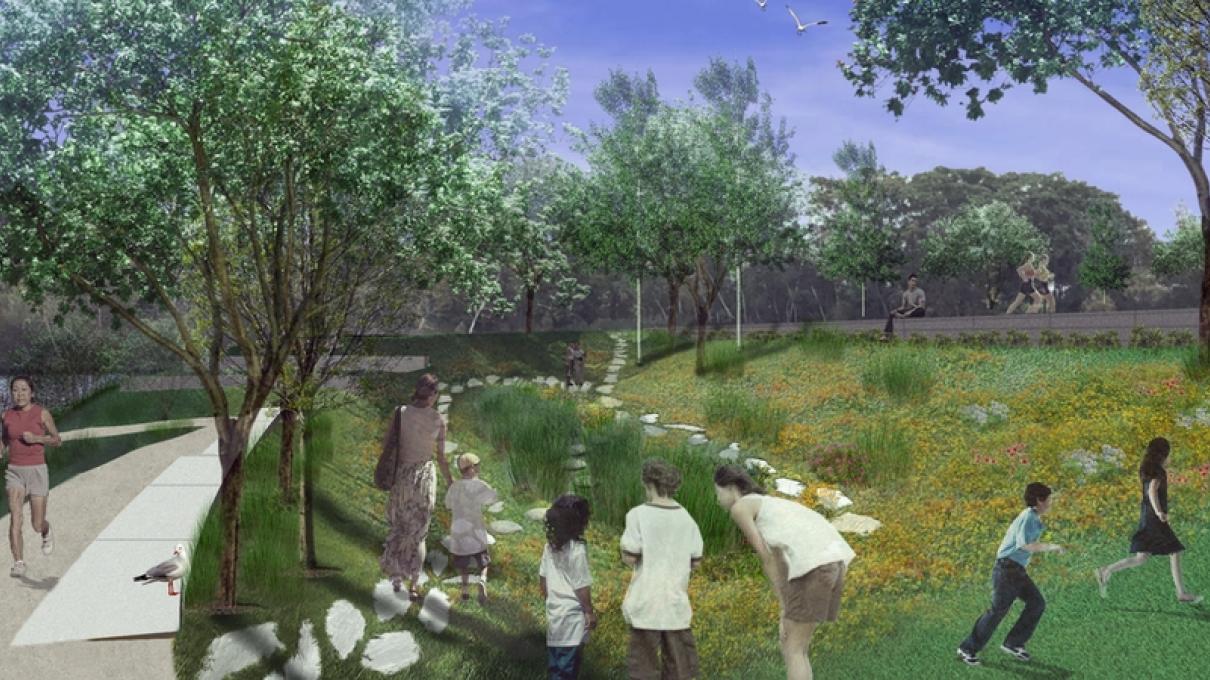Finding Common Ground in Malden

When disparate groups convene around a common goal, exciting things can happen. That is the inspiring story unfolding in Malden, Massachusetts, a city of about 60,000 — nearly half people of color — where a new type of community coalition continues to gain momentum on its plan to build a climate-resilient waterfront park along its river. The Malden River Works (MRW) project, recipient of the inaugural Leventhal City Prize, is seeking to connect to a contiguous greenway network where neighboring cities already have visitors coming to their parks and enjoying recreational boating. More important, the MRW is changing the model for how cities address civic growth, community engagement, equitable climate resilience, and environmental justice.
The MRW’s steering committee consists of eight resident leaders of color, a resident environmental advocate, and three city representatives. One of the committee’s primary responsibilities is providing direction to the MRW’s project team, which includes urban designers, watershed and climate resilience planners, and a community outreach specialist. MIT’s Kathleen Vandiver, director of the Community Outreach Education and Engagement Core at MIT’s Center for Environmental Health Sciences (CEHS), and Marie Law Adams MArch ’06, a lecturer in the School of Architecture and Planning’s Department of Urban Studies and Planning (DUSP), serve on the project team.
“This governance structure is somewhat unusual,” says Adams. “More typical is having city government as the primary decision-maker. It is important that one of the first things our team did was build a steering committee that is the decision maker on this project.”
Evan Spetrini ’18 is the senior planner and policy manager for the Malden Redevelopment Authority and sits on both the steering committee and project team. He says placing the decision-making power with the steering committee and building it to be representative of marginalized communities was intentional.
“Changing that paradigm of power and decision-making in planning processes was the way we approached social resilience,” says Spetrini. “We have always intended this project to be a model for future planning projects in Malden.”
This model ushers in a new history chapter for a city founded in 1640.
Located about six miles north of Boston, Malden was home to mills and factories that used the Malden River for power, and a site for industrial waste over the last two centuries. Decades after the city’s industrial decline, there is little to no public access to the river. Many residents were not even aware there was a river in their city. Before the project was under way, Vandiver initiated a collaborative effort to evaluate the quality of the river’s water. Working with the Mystic River Watershed Association, Gradient Corporation, and CEHS, water samples were tested and a risk analysis conducted.
“Having the study done made it clear the public could safely enjoy boating on the water,” says Vandiver. “It was a breakthrough that allowed people to see the river as an amenity."
Read the full story "Using an untapped resource, the Malden River Project is boosting social resilience along with climate mitigation in the gateway city of Malden, Massachusetts" by Maria Iacobo at MIT News.


